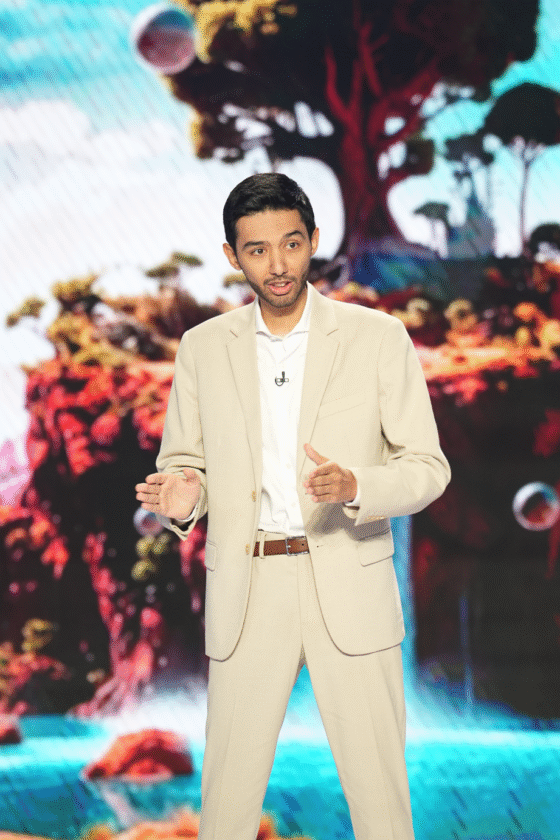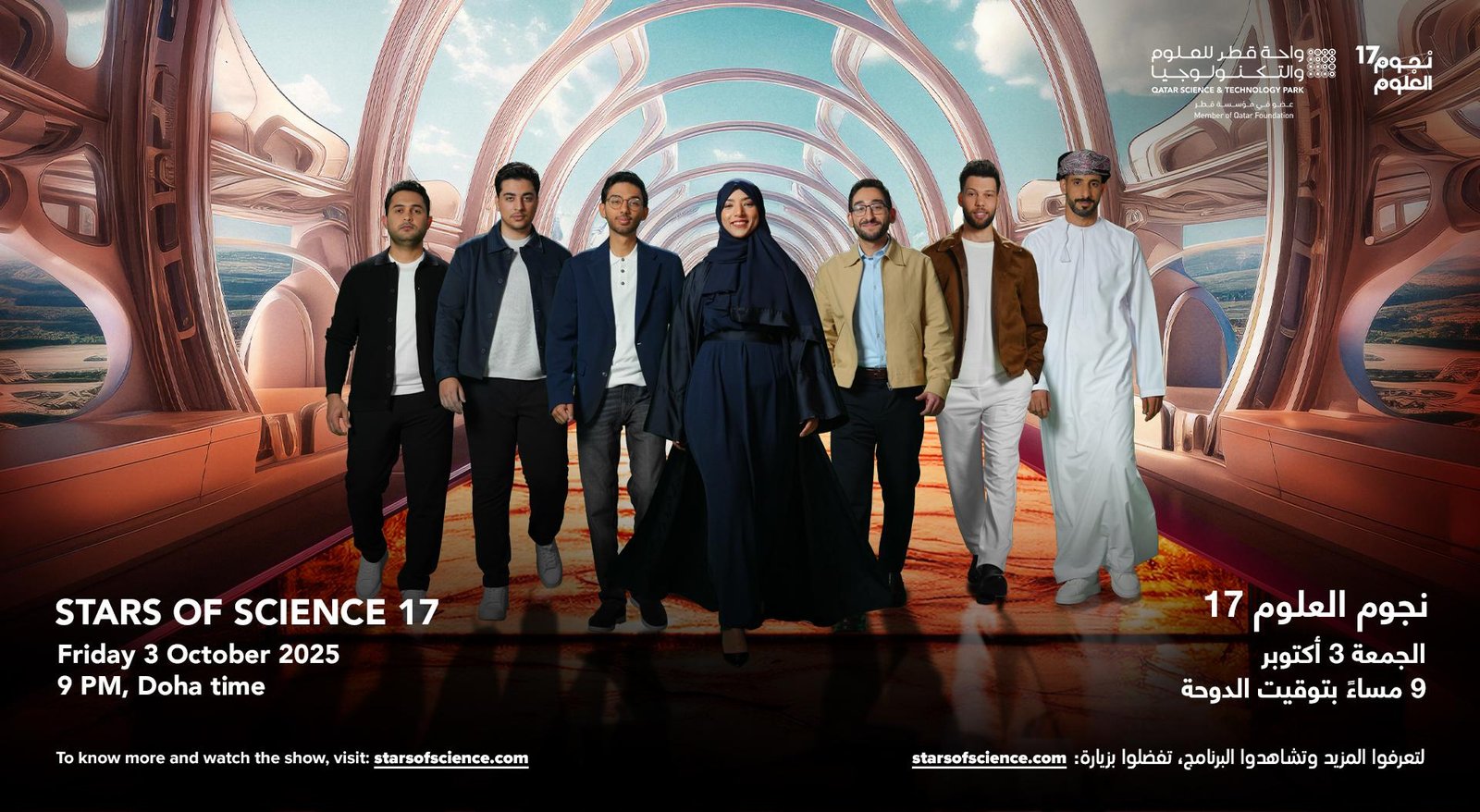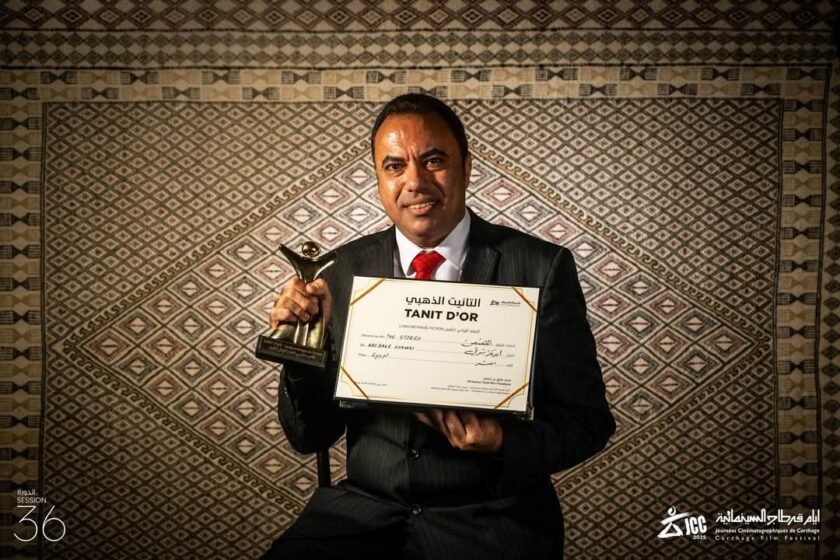In the heart of Qatar’s thriving innovation ecosystem, Stars of Science, a flagship program by the Qatar Foundation, continues to shine as a regional beacon for Arab ingenuity. Now in its 17th season, the show has evolved from being a science-based reality competition into a platform that shapes the future of technology, entrepreneurship, and problem-solving across the Arab world. Among this year’s exceptional participants stands Mohamed Kahna, a young Tunisian innovator whose AI-powered invention is redefining precision in modern surgery.
A Journey from Tunisia to the Global Stage
At just 26 years old, Mohamed Kahna exemplifies the spirit of a new generation of Arab scientists. Born and raised in Tunisia, his fascination with innovation began early—fueled by a deep curiosity for how technology can transform healthcare. Kahna holds a bachelor’s degree in Surgical Technology and was selected for the prestigious Lazord Fellowship in 2021, a program that cultivates young changemakers across the MENA region.
He later pursued an MBA from the Quantic School of Business and Technology (2023), combining his medical expertise with strategic business thinking—an essential step for any innovator hoping to bring their invention from the lab to the market.
Kahna’s accomplishments are already remarkable. At the age of 20, he earned the title of “Youngest Arab Inventor” at the Dubai Innovates Initiative during the COVID-19 pandemic. More recently, he received the Best Presenter Award from the University of Doha for Science and Technology, after presenting a research paper exploring the use of social intelligence in surgery. These achievements are not just accolades—they are milestones on his path toward redefining the interface between medicine and artificial intelligence.
The Invention: An AI and AR Surgical Navigation System
Kahna’s project, developed as part of Stars of Science Season 17, is a real-time surgical guidance system that integrates artificial intelligence (AI) and augmented reality (AR) to assist surgeons during minimally invasive procedures. Functioning like a “GPS for the operating room”, the device projects real-time visual cues and emits audio alerts, guiding surgeons toward areas requiring heightened precision.
He explains:
“When human lives are at stake, we don’t start from scratch—we build on existing safety measures and enhance them with technology.”
This innovation addresses a critical challenge in laparoscopic and endoscopic surgeries, where limited visibility can lead to errors and complications. By improving intraoperative decision-making, Kahna’s system could significantly reduce surgical risks and enhance patient safety.
From Vision to Impact
Kahna’s work embodies a growing movement within the Arab innovation ecosystem—one that shifts focus from diagnostics to intraoperative assistance. “Most medical innovations concentrate on detecting disease,” he says, “but few tackle the challenges inside the operating room. This project aims to change that.”
His vision extends beyond the Stars of Science competition. Kahna is already planning to establish his own company dedicated to digital surgery, a concept that merges advanced engineering, machine learning, and real-time data visualization into a seamless medical ecosystem. His long-term goal is to launch this venture in Qatar and scale it internationally, introducing the discipline of “surgical engineering” as a new frontier in global healthcare.
The Arab Innovators Shaping the Future
Kahna is one of seven finalists in this year’s Stars of Science, each addressing regional challenges with global implications—from health and sustainability to environmental protection and mental wellness. Their collective work is a testament to how Arab youth are leveraging technology to tackle issues that matter most to their communities.

Through partnerships with institutions like the Qatar Science and Technology Park (QSTP), Stars of Science provides mentorship, state-of-the-art laboratories, and investor access, empowering participants to transform prototypes into real-world applications. Many alumni have gone on to launch startups and develop technologies that serve both regional and global markets.
The Legacy of “Stars of Science”
Since its inception in 2009, Stars of Science has become more than a competition—it’s a catalyst for a generation of Arab innovators. Over 16 years, the program has produced 175 graduates from 18 Arab countries, aired more than 313 episodes, and contributed to the launch of over 55 technology startups across multiple sectors.
Blending education with entertainment, the show has redefined how science can inspire a mass audience, promoting a culture of research, creativity, and innovation across the Arab world.
As the competition moves toward its final weeks, viewers across the region continue to follow the journeys of its contestants—particularly innovators like Mohamed Kahna, who represent the fusion of science, compassion, and ambition.
“Success comes from persistence,” Kahna reflects. “When you see a gap in your field, don’t wait for someone else to fix it—create the solution yourself.”
Through his vision and determination, the young Tunisian surgeon-inventor stands as a shining example of what Stars of Science represents: the power of Arab minds to turn innovation into impact.
TunisianMonitorOnline (Douha Essafi)




